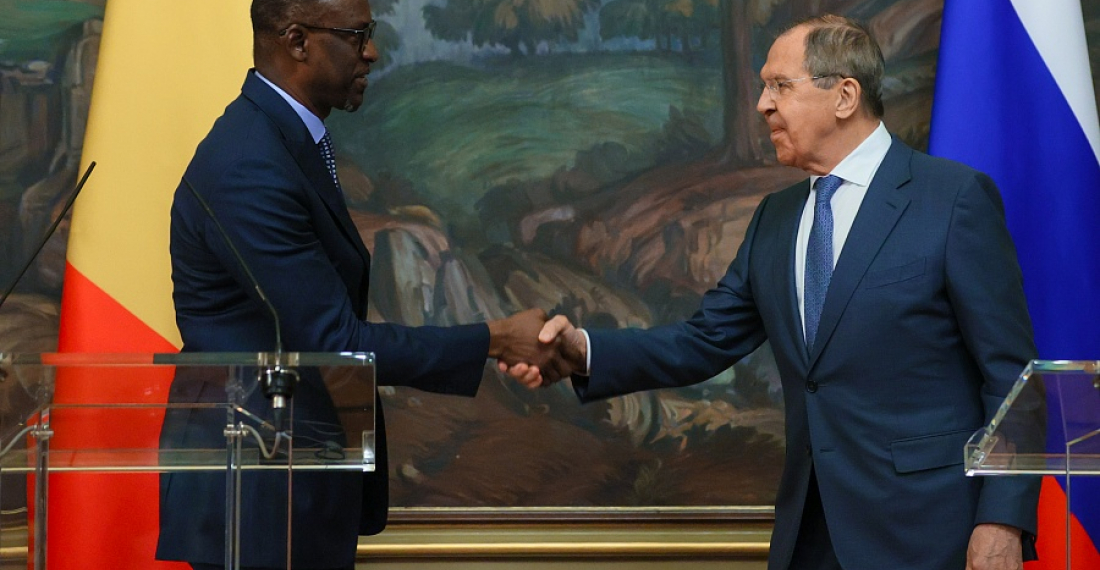Russia continues with its efforts to strengthen its position in the Sahel region of Africa. On Friday (20 May), foreign minister Sergei Lavrov received in Moscow his Malian counterpart Abdoulaye Diop with promises of Russian support for the the Malian military government across a range of areas, including defence, security and energy. Lavrov speaking at a press conference with Diop accused France of trying to dictate to Mali who they can or cannot communicate with. "This is unacceptable and does not make the French Republic or French manners look good", the Russian foreign minister said.
Mali witnessed a military coup in May 2021, its second in a period of nine months. Both coup efforts were orchestrated by Colonel Assimi Goita, who now serves as the country's transitional president.
Tensions between Goita and the French government resulted in president Emmanuel Macron announcing the withdrawal of all French forces from the country earlier this year. French troops were seen as pivitol in securing Mali against a jihadist insurgency which has claimed many lives, especially in the north of the country.
However, on the same day of the visit of the Malian foreign minister to Moscow, Germany's parliament, the Bundestag, voted to support redeployment of German troops in the West African country. Germany has had a military contingent in Mali for the past nine years, assisting with security operations amid an ongoing jihadi insurgency.
The Bundestag increased German participation in the UN peacekeeping force in Mali (MINUSMA), raising the maximum number of Bundeswehr soldiers to be deployed there from 1,100 to 1,400.
Germany will contribute to the peacekeeping force for another year, with 541 members of parliament voting for the measure and 103 voting against.
At the same time, Germany will draw down its forces deployed in the European Union Training Mission in Mali (EUTM Mali) from a maximum of 600 German soldiers to 300. The vast majority of these troops will be stationed in Mali's neighbor, Niger.
The EU training mission aims to help Mali secure the country from terrorist threats and organized crime. Security forces in Burkina Faso and Mauritania will also be trained as part of Germany's mandate in the region.
A serious point of contention between EU countries and the Malian military authorities is the presence in the country of mercenaries from Russia's notorious Wagner Group, whose role appears to be to protect the Malian coup leaders. Wagner Group forces have been accused of civilian killings.
During a recent visit to Mali in April, German Foreign Minister Annalena Baerbock said there will be no co-operation with Russian actors in the country given the Kremlin's recent invasion of Ukraine
Lavrov earlier this month said Wagner Group mercenaries are in Mali on a "commercial basis," and their activities are not connected with the Russian government. But there is hardly anyone left in the world who believes this.
source: commonspace.eu with DW (Cologne) and the press service of the Russian foreign ministry (Moscow)
photo: Russian foreign minister Sergei Lavrov at a press conference with his counterpart from Mali, Abdoulaye Diop in Moscow on 20 May 2022 (picture courtesy of the press service of the Ministry of Foreign Affairs of the Russian Federation, Moscow).






